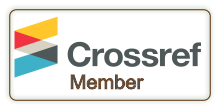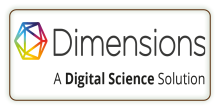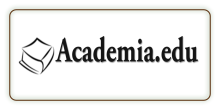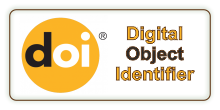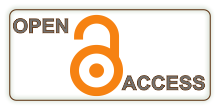THE POTENTIAL AND ETHICAL ISSUES OF ARTIFICIAL INTELLIGENCE IN IMPROVING ACADEMIC WRITING
DOI:
https://doi.org/10.29121/shodhai.v2.i1.2025.24Keywords:
Artificial intelligence (AI), Academic Writing, International ConferencesAbstract
Artificial intelligence (AI) has brought about transformative opportunities and has attracted the attention of many international organisations to the intent that UNESCO has held two international conferences on it. including (i) International Conference on Artificial Intelligence and Education in 2019 in Beijing, focusing on leveraging AI to advance education and sustainable development. This conference resulted in the Beijing Consensus on Artificial Intelligence and Education, outlining strategies for AI integration in educational policies and systems (ii) Forum on AI and Education 2022, emphasising the use of AI to empower teachers and transform teaching practices globally. Meanwhile, there was a regional forum led by UNESCO which examined AI in the context of ethics and societal impact, contributing to frameworks like the Recommendation on the Ethics of Artificial Intelligence in 2021. This paper focused on ethical challenges in academic writing and examines the growing significance of AI-powered tools for improving academic writing with an emphasis on how these innovations expedite research procedures raise writing standards and increase output. Artificial intelligence (AI) tools that save time and effort during drafting and editing include content generators citation managers and grammar checkers. These tools are very helpful for researchers and writers. The preservation of human creativity authorship plagiarism and intellectual integrity are some of the issues brought up by this growing reliance on AI. A number of ethical issues are looked at including who owns content created by AI the possibility of losing one’s ability to think critically and the possibility of idea misattribution. Though AI has the potential to completely transform academic writing the paper contends that in order to ensure that these technologies are used responsibly and enhance rather than replace human intellect and creativity a careful balance must be struck. There are suggestions given for preserving academic integrity and encouraging moral application of AI in research projects.
References
Ahmad, K., Iqbal, W., El-Hassan, A., et al. (2024). Data-Driven Artificial Intelligence in Education: A Comprehensive Review. IEEE Transactions on Learning Technologies, 17, 12-31. https://doi.org/10.1109/tlt.2023.3314610
Alasadi, E. A., & Baiz, C. R. (2023). Generative AI in Education and Research: Opportunities, Concerns, and Solutions. Journal of Chemical Education, 100(8), 2965-2971. https://doi.org/10.1021/acs.jchemed.3c00323
Almufarreh, A., & Arshad, M. (2023). Promising Emerging Technologies for Teaching and Learning: Recent Developments and Future Challenges. Sustainability, 15(8), 6917. https://doi.org/10.3390/su15086917
Bahari, A., Smith, M., & Scott, H. (2024). Examining the Impact of Chatbot-Based Language Learning Support, Adaptive Learning Algorithms, and Virtual Reality Language Immersion on EFL Learners’ Language Learning Proficiency and Self-Regulated Learning Skills. (accessed on 25 May 2024)
Benzaghta, M. A., Elwalda, A., Mousa, M., et al. (2021). SWOT Analysis Applications: An Integrative Literature Review. Journal of Global Business Insights, 6(1), 55-73. https://doi.org/10.5038/2640-6489.6.1.1148
Farahani, M. S., & Ghasmi, G. (2024). Artificial Intelligence in Education: A Comprehensive Study. Forum for Education Studies, 2(3), 1379. https://doi.org/10.59400/fes.v2i3.1379
Guo, L., Wang, D., Gu, F., et al. (2021). Evolution and Trends in Intelligent Tutoring Systems Research: A Multidisciplinary and Scientometric View. Asia Pacific Education Review, 22(3), 441-461. https://doi.org/10.1007/s12564-021-09697-7
Holmes, W., & Tuomi, I. (2022). State of the Art and Practice in AI in Education. European Journal of Education, 57(4), 542-570. https://doi.org/10.1111/ejed.12533
Jaboob, M., Hazaimeh, M., & Al-Ansi, A. M. (2024). Integration of Generative AI Techniques and Applications in Student Behavior and Cognitive Achievement in Arab Higher Education. International Journal of Human–Computer Interaction, 1-14. https://doi.org/10.1080/10447318.2023.2300016
Murtaza, M., Ahmed, Y., Shamsi, J. A., et al. (2022). AI-Based Personalized E-Learning Systems: Issues, Challenges, and Solutions. IEEE Access, 10, 81323-81342. https://doi.org/10.1109/access.2022.3193938
Ojokheta, K. O., & Omokhabi, A. A. (2023). Project Initiatives on Inclusive and Equitable use of Artificial Intelligence in Education: Lessons Derivable for Policy Direction in Nigeria. COUNS-EDU: The International Journal of Counseling and Education, 8(3). https://doi.org/10.23916/0020230845430
Singh, V., & Ram, S. (2024). Impact of Artificial Intelligence on Teacher Education. Shodh Sari-An International Multidisciplinary Journal, 03(01), 243-266. https://doi.org/10.59231/sari7669
Tahiru, F. (2021). AI in Education. Journal of Cases on Information Technology, 23(1), 1-20. https://doi.org/10.4018/jcit.2021010101
Wang, Y., Fu, E. Y., Zhai, X., et al. (2024). Introduction of Artificial Intelligence. In Intelligent Building Fire Safety and Smart Firefighting. Springer Nature Switzerland. https://doi.org/10.1007/978-3-031-48161-1_4
Zhang, C., & Lu, Y. (2021). Study on Artificial Intelligence: The State of the Art and Future Prospects. Journal of Industrial Information Integration, 23, 100224. https://doi.org/10.1016/j.jii.2021.100224
Zhang, K., & Aslan, A. B. (2021). AI Technologies for Education: Recent Research & Future Directions. Computers and Education: Artificial Intelligence, 2, 100025. https://doi.org/10.1016/j.caeai.2021.100025
Published
How to Cite
Issue
Section
License
Copyright (c) 2025 Olakunle Titus Ajiye, Abiola Adiat Omokhabi

This work is licensed under a Creative Commons Attribution 4.0 International License.
With the licence CC-BY, authors retain the copyright, allowing anyone to download, reuse, re-print, modify, distribute, and/or copy their contribution. The work must be properly attributed to its author.
It is not necessary to ask for further permission from the author or journal board.
This journal provides immediate open access to its content on the principle that making research freely available to the public supports a greater global exchange of knowledge.












